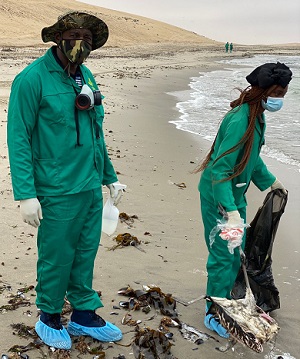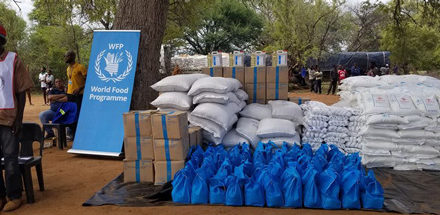
Highly pathogenic avian influenza confirmed

The Ministry of Agriculture, Water and Land Reform together with the Ministry of Health and Social Services on Thursday confirmed the outbreak of highly pathogenic avian influenza (HPAI) H5N1 strain in wild birds occurring along the coastal line of Walvis Bay and Swakopmund in the Erongo region.
The HPAI H5N1 is a zoonotic strain and can be transmitted to humans from infected birds, the two ministries said in a joint statement.
“The source of infection is believed to be the wild migratory birds and the HPAI H5N1 strain is being detected for the first time in the history of Namibia,” they added.
The two ministries are jointly conducting disease outbreak investigations and instituted has asked poultry farmers and the general public to immediately report any suspicion of sick or dead domestic or wild birds along the entire Namibian Coastal Line to the nearest State Veterinary Office or other relevant government officials.
“Movement of live domestic and wild birds from coastal areas of Erongo region is prohibited in exception of the imports and in-transit consignments originating from other countries,” the statement added.
Furthermore, farmers and the general public have been urged o cooperate, support and comply with the control measures put in place to prevent the further spread of the infection.
Over 200 dead wild birds, mainly the Cape Cormorants were observed since 13 January on Bird Island near Walvis Bay and around the Salt Company in Swakopmund.










































